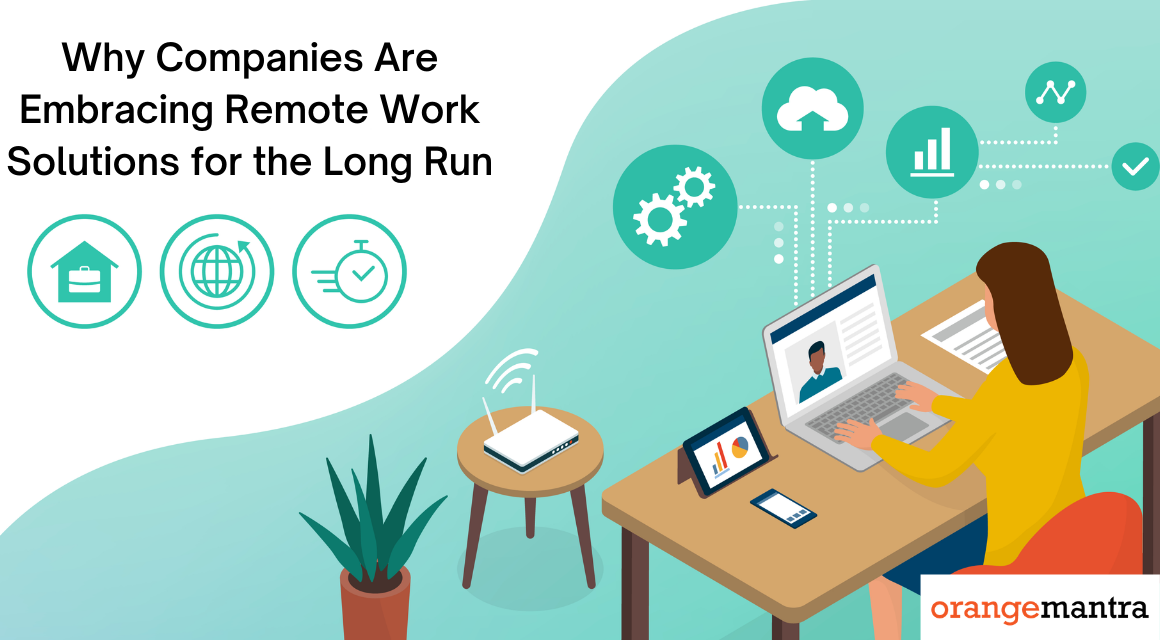Companies in India and elsewhere in the world are postponing their back-to-the-office plans. With the second wave of COVID-19 raging and a glacial pace of vaccination, many countries are not ready for in-office operations. Even in countries with a faster vaccine rollout, companies are expanding their remote work arrangements. That means remote work is here to stay for now. And remote work solutions play a central role in all of these.
Besides, the shift to work-from-home has expanded much beyond tech companies over the past year. With the pandemic-induced uncertainties looming, more companies are embracing remote work solutions for the long term. For instance, Arcimoto, a three-wheeled electric maker based in the U.S., is betting big on digital communication and collaboration tools. In this blog post, we’ll delve deeper into how the workplace is evolving, highlighting the benefits of remote work.
Remote Work Challenges & Opportunities for CIOs
IT leaders around the world are investments in digital collaboration tools and automation solutions. With a growing number of companies are gearing up for a “hybrid” work model, these investments seem realistic. Besides, some employees are already splitting time between the physical office and work from home.
Amid these rapidly changing workplace trends, corporate leaders are betting big on digital transformation solutions of a new breed. For example, the software company Atlassian Corp. is experimenting with virtual avatars to manage the so-called Zoom fatigue, The Wall Street Journal reported. Pepsi Co, the food and beverage manufacturer, is looking for options to use business process automation to lessen employees’ workload. At the same time, SurveyMonkey is testing AI-powered chatbots to answer IT-related questions.
As this new wave of digital transformation grows, areas like mobile app development are undergoing dramatic evolutions. For example, the U.S. division of the consulting firm PwC has built an app that enables employees to reserve physical workspaces. Analysts say these trends are likely to continue even after the pandemic wanes.
How Remote Work Benefits Businesses
In the Before Time, business owners and executives consider the risks and benefits before adopting digital transformation solutions for operations. That changed in 2020 when digital became the only option for many businesses. It also accelerated the pace at which organizations embrace remote work.
Enhanced Collaborations
In a digital work environment, every employee can collaborate seamlessly across teams within the organization. They can support organizational priorities and help other teams to speed up projects. Enhance accessibility to other experts within the organization contributes significantly to the overall organizational productivity. While employees get to hone new skills teams get crucial new stakeholders. Together, all these factors help boost overall productivity and engagement.
Increased Flexibility
Flexibility is perhaps the greatest benefit of remote work from an employee’s perspective. In a digital work setting, a worker can decide where and when to work. Besides, flexible work arrangements also help solve ages-old organizational problems like the lack of diversity, and gender gap, among others.
Better Efficiency
Digitally transformed workplaces can more smoothly streamline processes and administrative tasks. Equipped with online ERP solutions and office collaboration tools, teams can more than ever before. These solutions enable teams to remove barriers, speeding up the flow of information across the organization. It allows teams to make data-driven decisions and achieve new milestones.
Higher Return on Tech Investments
With remote and hybrid work settings organizations can decentralize processes. Remote work solutions also make it easier to deploy specialized platforms. For instance, cloud-based enterprise applications let employees easily access data and tools. With better tools and techniques, organizations can free up their IT teams to focus on critical undertakings. An increased focus on advanced processes further leads to better yield from tech teams. Besides, IT teams can focus more on creating innovative methods and solutions.
Wrapping Up
Remote work has been expanding its horizon at an unprecedented pace. Companies and sectors that were until now were considered not suitable for remote work are, too, joining the digital revolution. For example, Arcimoto, a U.S.-based electric vehicle maker, is digitally transforming its manufacturing facility in Eugene, Oregon. Arcimoto is using technology B2B digital tools and automation solutions to smoothly manage the manufacturing facility.
At OrangeMantra, we specialize in creating deeply personalized enterprise solutions that speed up your digital transformation process. Over the past year, we have helped dozens of small, medium, and large enterprises swiftly embrace the new wave of digitization using cutting-edge tech solutions. Reach out to us to discuss a profitable digital transformation strategy.
Frequently Asked Questions
Q. What does it mean to work remotely?
Remote work, or work from home, is a working style that allows professionals to work outside of a traditional office environment. Remote work arrangements are based on a tech-enabled infrastructure. OrangeMantra builds remote work solutions within the shortest development time possible.
Q. What is cloud ERP?
Cloud-based ERP is a type of enterprise resource planning (ERP) software that runs on a cloud computing platform, rather than on a business’s premises. Cloud or online ERP solutions offer great benefits in terms of cost and efficiency.
Q. What is meant by digital transformation?
Digital transformation is the process of using digital technologies to create or modify a tech-based business infrastructure. Digital solutions enable companies to enhance the work culture, and customer experiences, and implement remote working, among other things.























